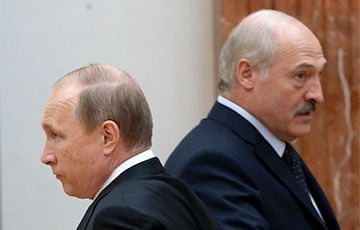‘That's Why Kremlin Involved Lukashenka’
23- 2.05.2024, 22:05
- 59,858

Why is the Belarusian dictator rushing around?
The Global Peace Summit will be held in Bürgenstock, Switzerland, on June 15-16. 80 to 100 states may take part there. What is Ukraine expecting from this summit? Why do the Kremlin and Lukashenka dislike this event so much?
Charter97.org asked these and other questions Oleksandr Musienko, a political expert and head of the Ukrainian Center for Military and Legal Studies:
— We in Ukraine expect from this summit that, first, it will once again draw attention to the fact that there is a Russian-Ukrainian war. I think it is extremely important to inform about this, to tell about the consequences. Russian missile terror against peaceful Ukrainians has escalated.
Second, this event demonstrates to the world Ukraine's desire to end the war. Our country stands for a peaceful solution. We are not interested in the continuation of the war, but at the same time this peaceful solution should be based on international law and the UN Charter. It speaks of respect for territorial integrity, independence and sovereignty.
Third, Ukraine attracts a fairly large number of countries to this process. Preliminary – more than 100 countries have already expressed that they want to come. It turns out that this is also a way of putting pressure on the Russian Federation. Could you show Putin’s forum where there will be more than 100 countries that support his version of peace? No way.
Fourth, it is a way to draw attention to radiation safety. Russia has occupied the Zaporizhzhia Nuclear Power Plant, and is conducting provocative actions against nuclear power plants, energy and food security of the world.
In fact, this requires a Global Peace Summit: to unite countries in support, to show that Ukraine is not alone in the idea of peace on fair terms.
— Lukashenka also reacted several times to the Global Summit. He said, "if he and Putin are not invited to Switzerland, then this is a panopticon." Why did he react this way? After all, he could just ignore this event.
— It is clear that Lukashenka largely relays Putin's thoughts. In this situation, he is isolated together with Russia. Can Lukashenka offer an alternative to the Global Peace Summit in Switzerland? No. The alternative (in his understanding) is only the Russian version, which he deliberately does not want to voice in order to seem supposedly good.
Lukashenka is fulfilling the Kremlin's task in this regard. He makes appropriate statements, they say, negotiate with Russia on its terms or already "some troops from Vitebsk are being transferred." Again, he talks about nuclear escalation, pouring threats and so on.
It is also worth paying attention to the fact that, most likely, Lukashenka joined on the instructions of the Kremlin, because Russia is not sure that it will be able to achieve its goal by military means for now. Despite the offensive, they did not expect American help and are considering the option of insurance. In particular, they threaten with nuclear weapons and so on.
— Lukashenka has been making many mutually exclusive statements lately. He threatened with nuclear weapons, then said that Belarus would be liberated by NATO troops, then called on everyone to sit down at the negotiating table. Why is he so rushed?
— It's very simple: he offers, they say, let's sit down at the negotiating table and accept the Russian conditions. If you do not accept it, I want to remind you that Belarus, together with the Russian Federation, is preparing for any action. Russian nuclear weapons on the territory of Belarus — do not even think about any scenarios.
If you do not accept the conditions of Russia, then Belarus will be used as a factor of escalation against the Baltic States and Poland. That's, in fact, what Lukashenka wants to say, hinting at possible aggression against these countries. He hints at this, again, because of Russia's uncertainty.
If Putin understood that he would achieve success, he would not engage the Lukashenka factor again. It turns on when Russia needs to intimidate the West. When the Kremlin is not sure that everything is fine on the battlefield.











